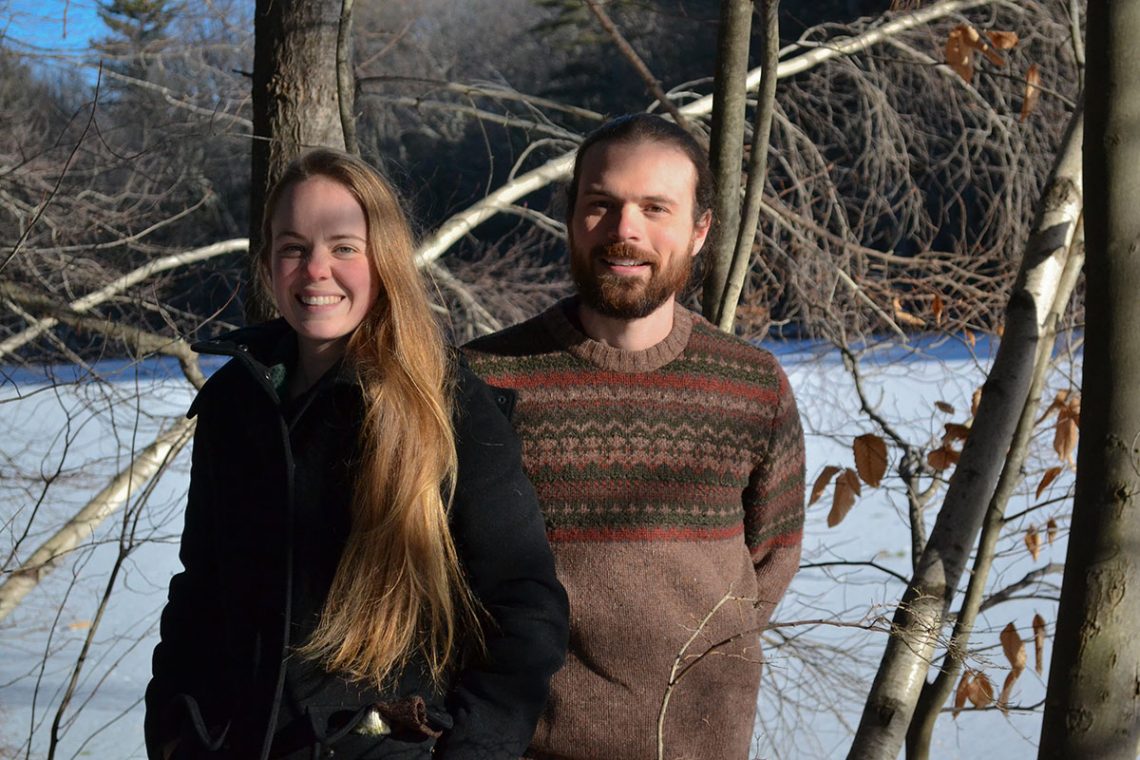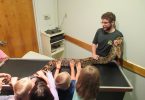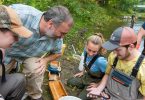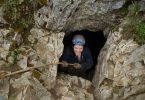Co-Founder and Co-Chief Executive Officer: Maine Outdoor School, L3C
Joseph Horn found his way to Unity through a friend and Unity advocate.
“I had worked at a Boy Scout camp in Maine during high school, where I fell in love with the hills, mountains, lakes, and forests of Maine,” he said. “Back in my home state of Connecticut, a friend told me about Unity College and described it as a rustic tiny college nestled among the rich farmlands, deep woods, and pristine lakes of Maine. Coupled with the description of Unity’s focus on environmental degrees, I was sold.”
Horn said he was committed to Unity early on.
“Unity was the only college I applied to, and I hadn’t even visited the campus. I attended a Unity visiting day in the spring of my senior year of high school and saw the campus for the very first time,” he said. “An admissions staff member came up to me on the green amphitheater and addressed me by name — a big change from my background in Connecticut, where most people don’t really know one another and certainly don’t approach strangers with such warmth and sincerity. When this staff member handed me my acceptance letter, I accepted on the spot.”
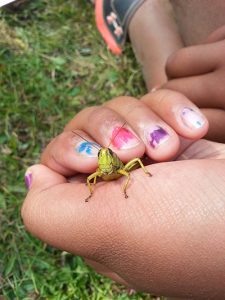
What set Unity apart was the no-nonsense, roll up your sleeves and get your hands dirty approach to fixing this world, one solution at a time.
Joseph was on campus from Fall 2006 through May 2010, when he graduated with a major in Environmental Biology and a minor in Botany.
Joseph waxes poetic in his memories of campus:
“The crisp cool air blowing up to campus as the Fall started setting in and the first morning of frost as I walked to my 8 a.m. Biology class with Aimee Phillippi; Carving pumpkins and listening to Jud Caswell sing at open mic nights on dark winter nights in the SAC; Citizen Science projects with Dave Potter; climbing trees with Doug Fox; brewing beer with Kevin Spigel; the dark humor and doom-and-gloom discussions of climate change with Mick Womersley; helping an astronomy professor build her commercial-sized mud oven with my friends and Barry Woods describing calculators and computers as “Mr. Machine.”
“In my academic pursuits, I quickly realized that my true love was for education and natural history. I loved diving deeply into understanding natural systems, animal and plant species, and the geology of an area and ultimately being able to re-articulate that to a group of students. If it weren’t for Unity College, I’m not sure I would have discovered my passion and aptitude.”
Horn said he felt his passion for teaching was inspired and modeled by Unity College faculty.
“I learned this from the twinkle in Doug Fox’s eye as he quoted Emerson’s description of the shrub Rhodora, ‘Beauty is its own excuse for being.’ I learned the importance of holding your students to high expectations yet relating to your students on a comfortably friendly level from Beth Arnold.”
“My passion for learning and making change in the world, one student at a time, is one of the greatest takeaways from Unity that I carry with me in my work today. Most importantly, Unity imbued in me a sense that there are a whole lot of issues in this world that need our help.
“What set Unity apart was the no-nonsense, roll up your sleeves and get your hands dirty approach to fixing this world, one solution at a time.
“It might have looked like measuring wind speed for wind energy projects or insulating neighbors’ homes for winter, or even taking a group of Unity students on an alternative spring break community service trip. But at Unity, we were empowered to identify issues in our communities and be agents of action and change. That’s one huge reason I went on to co-found Maine Outdoor School, L3C (MOS).”
Joseph and his partner, Hazel Stark, fueled by completing three master’s degrees between them, started MOS with a mission to “serve as an educational catalyst for personal and community resilience in Downeast Maine through the lenses of economic vitality, environmental sustainability, and social equity.”
MOS programming diligently teaches to the standards and mandates that classroom teachers are accountable for, but does so in a way that helps students deconstruct the natural history and land use history of Downeast Maine and challenges them to reconstruct that understanding by envisioning and enacting a project for a resilient future for themselves and their communities.
“Our programs are so actionable and interdisciplinary, we have found that our students truly understand key learning objectives—whether that’s a 7-year-old who sat us down last week to tell us about the difference between biotic and abiotic factors, or the 10-year-old who said to us at the wrap-up of a week of programming, ‘I am going to tell my friends and family at home about the ecosystem. It affects what we eat.’
“The hands-on, solution-based approach that Unity modeled, the approachable faculty who inspired further learning, and the breadth of experiences I was ready for at the conclusion of my time at Unity, are all aspects that we aim to model within Maine Outdoor School,” he said.
Learn more at: www.MaineOutdoorSchool.org.
